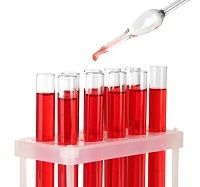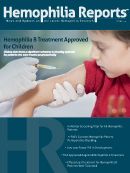Publication
Article
Hemophilia Reports
FDA Approves Acquired Hemophilia A Treatment
Author(s):
A drug to treat acquired hemophilia A was approved by the FDA, according to a statement made by manufacturer Baxter International Inc.

An antihemophilic factor recombinant has been approved by the Food and Drug Administration (FDA) to treat acquired hemophilia A (AHA).
Manufacturer Baxter International Inc. announced in a press release that its drug, Obizur, treats bleeding episodes in adults with AHA. The drug was granted an orphan-drug status and fast-tracked based on AHA’s classification as a rare disease. FDA regularly fast-tracks the approval process for rare diseases medications because the potential for the treatment addresses an unmet medical need.
Obizur is the first recombinant porcine FVIII treatment approved for AHA that enables physicians to manage the treatment’s efficacy and safety by measuring factor VIII actively in levels in addition to clinical assessments. The idea is that Obizur can replace the inhibited human factor VIII with a recombinant porcine sequence factor VIII based on the rationale that it would be less susceptible to inactivation by circulating human factor VIII antibodies.
The approval was based on evidence from a global, prospective, controlled, multi-center Phase 2 and 3 open-label clinical trial. It examined the efficacy (28 patients) and safety (29 patients) of Obizur in the treatment of serious bleeding episodes in adults with AHA. All patients in the efficacy group showed a positive response, which was defined as an effective or partially effective response with bleeding stopped or reduced and clinical improvement at the 24-hour mark after the initial infusion. Most (86 percent) of the patients had successful treatment of the initial bleeding episode.
“As a new treatment option with the ability to measure FVIII activity in the body, Obizur will address important unmet needs for patients with AHA, a potentially life-threatening condition,” Brian Goff, head of Baxter’s hemophilia franchise, continued in the statement. “This approval reflects Baxter’s long-standing commitment to discovering new options for hemophilia patients and adds to our portfolio of treatments that reduce the burden of these diseases.”
Common adverse reactions were observed in 5 percent of the 29 clinical trial patients, and developed from inhibitors to porcine factor VIII. Obizur is contraindicated in patients who have had life-threatening hypersensitivity reactions to the drug or its components, including traces of hamster proteins. While the drug is expected to be commercially available in the coming months in America, the drug is also currently under regulatory review in Europe and Canada.
“The approval of Obizur is welcome news for the hemophilia community based on the data from the first clinical trial designed specifically for AHA, which found that all patients responded to treatment within 24 hours,” Rebecca Kruse-Jarres, MD, MPH, Director of the Hemophilia Care Program at Puget Sound Blood Center in Seattle and the clinical trial’s principal investigator. “Importantly, this new option to treat bleeding episodes will enable us to measure factor VIII levels, thus giving us an objective marker of hemostasis that can guide dosing and prevent overdosing.”
Physicians are advised to monitor the patient for development of antibodies to Obizur by appropriate assays. The manufacturers suggest performing one-stage clotting assay 3 hours 30 minutes after initial dosing and 30 minutes after subsequent doses to confirm that acceptable factor VIII levels have been achieved and maintained.



